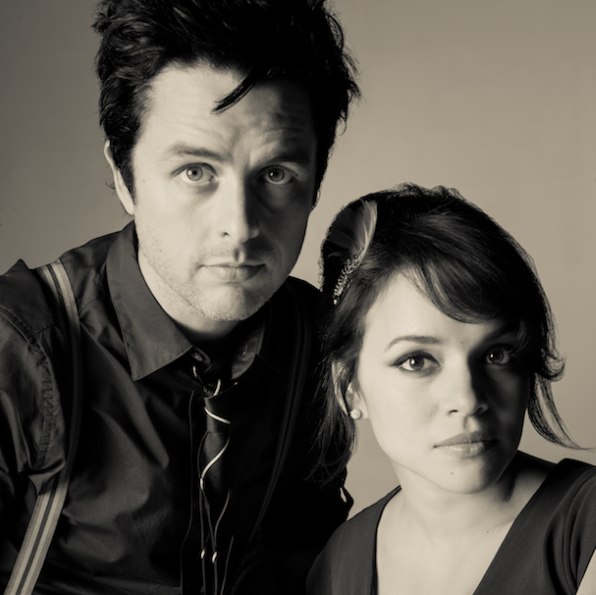This week in sounds.
Videos by American Songwriter
The 1900s are Andra Kulans, Jeanine O’Toole, Edward Anderson, Caroline Donovan, and Charlie Ransford.
The 1900s
STREAM: [wpaudio url=”https://savageventures-develop.go-vip.net/wp-content/uploads/2010/11/08-Babies.mp3″ text=”The 1900s – Babies” dl=”0″]
Return Of The Century (Parasol Records) kicks off like a good bit of storytelling, though it’s not immediately clear what the story’s going to be about. “You wanna run so free, but why would you be running from me?” sings Edward Anderson on “Amulet,” before two sirens chime in, “I don’t mind what you did, I don’t mind what you did.” Later on, the story of a runaway fully emerges. Licorice McKechnie, the one-time member of the Incredible String Band who went batty and disappeared mysteriously in the ‘90s, inspired songwriters Anderson and Caroline Donovan on Return. (Presently, McKechnie is believed to be living quietly in California.) Since the band’s last release, 2007’s Cold & Kind, the two songwriters visited the desert and thought a lot about those ‘60s cults. The Chicago collective even vaguely resembles those freer times in their communal spirit and, on the single “Babies,” they sound like they could be Edward Sharpe’s musical brethren. Return is a great return to form for the 1900s: deeper and more sublime and refined than the ‘60s feel-good pop of Cold & Kind.
Laurel Halo
Maybe it’s just the weather these days, but “Coriolis,” the fourth track from Laurel Halo’s EP King Felix (Hippos In Tanks, November 30), sounds an awful lot like a Christmas carol. The Brooklyn singer/producer is among the new group of female artists (Zola Jesus, Beach House, Glasser) who place their soaring vocal atop slowed-down, cheap-sounding club beats. Like Glasser, the sciences and esoteric subjects similarly intrigue Laurel Halo. (Song titles like “Coriolis” and “Supersymmetry” both refer to topics in physics.) But Laurel Halo is also sonically grittier than her peers, which explains her association with fellow Brooklyn mad scientist, Oneohtrix Point Never, aka Daniel Lopatin, who adds a final track to the EP, a remix of Halo’s “Metal Confection.” While Halo’s own recordings have a poppy charm – featuring too-loud drum machines, panned layers of vocals, and phone-like synth pads – Oneohtrix’s remix is a burbling psychotropic soundscape, full of washed synths and electronic nature sounds. His motto “everything is noise” serves Halo well.
Valleys
On Valley’s new three-song EP, Stoner (Semprini Records), the California trio begin “The Cold, Cold Skinny” in the same vein as Warpaint’s whispery trance-psych. But then the six-and-a-half minute track moves into an Eno-esque ambient world of ringing synths and lightly droning guitars. A similar thing happens in “Ordinary Dream,” which comes to life as a pretty, shimmering pop song with twiddling guitars and echoing vocals, before a storm of My Bloody Valentine distortion hits. “Ten Thousand Hours” also hints at Valleys’ experimental curiosity, opening with the high-pitched tings of an electric guitar plucked behind the strings. Again the song becomes a study in juxtaposition: a marching drum beat, screamo vocals, and finally two guitars – one crunchy and bit-crushed, the other lovely and undulating – fight for foreground space while a buzzing synth alternates between two chords.
Wax Fang
This Louisville, Kentucky, band sound like they’ve been taking notes from Jim James, whose quirky Removador Recordings and Solutions label released their new song, “The Astronaut Pt. 1.” The17-minute prog opus starts out with big, reverb-y My Morning Jacket guitar chords and drum hits. “The stars don’t want to shine on me,” sings Scott Carney over a lilting 6/8 rhythm. After the song tumbles through it’s opening six minutes of chords and lyrics, the band goes minimal sci-fi with a prodding bassline, guitar effects, and random cymbal and gong splashes. You know it’s just the calm before the storm. A few minutes later, the drumbeat picks up to a hurrying shuffle, and the guitars and bass follow suit. By the end, Wax Fang is rocking like Zeppelin, with a II-era Bonham beat and Page-y guitar panned to the right speaker. But then, unexpectedly, a saxophone comes wildly into the mix, riffing like Ornette Coleman over a bed of heavy metal. Radiohead electronics carry the song to its stunning conclusion. What on earth will “The Astronaut Pt. 2” sound like?

















Leave a Reply
Only members can comment. Become a member. Already a member? Log in.